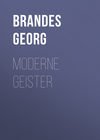Loe raamatut: «Eminent Authors of the Nineteenth Century», lehekülg 29
Take this combative pathos in its first outburst, – it is his "Catiline" conceived with the entire sympathy of an enthusiastic university student. Catiline despises and hates the Roman social life, in which violence and selfishness hold sway; where men become rulers through intrigue and strategy; and he, the single individual, rebels against society. Take this combative pathos in one of Ibsen's later works, in the most admirable of his dramas, "Et Dukkehjem" (A Model Home), where it rings with a subdued, but none the less penetrating tone from female lips. Where Nora, the singing-bird, the squirrel, the child, finally collects herself and says, "I must try to find out which is right: society, or myself"; where this frail creature dares place herself on one side and all society on the other, we feel plainly that she is a true daughter of Ibsen. Take, finally, the pathos, so filled with thirst for battle, in a later work, "Gjengangere" (Apparitions), in Mrs. Alving's words concerning the teachings of modern official society, as follows: "I only intended to meddle with a single knot, but when that was untied, everything fell to pieces. And then I became aware that I was handling machine sewing." In these words, remote though the poet may be from the heroine of the play, may be heard a sigh of relief, that for once, if only indirectly, utterance has been given to the utmost that could be said.
With Catiline and with Mrs. Alving, – Ibsen's first male and last prominent female creation, – there is the same sense of isolation as in the intermediate characters, Falk, Brand, and Nora, and the same despairing beating of the head against a stone wall. In his drama "En Folkefiende" (An Enemy of the People), the entire plot revolves about the one idea of how much strength there lies in isolation, and the play ends with the didactically expressed paradox, – "The fact is, you see, the strongest man in the world is he who stands absolutely alone."
The current name in modern Europe for this mode of regarding the world and humanity is pessimism. There are, however, many kinds and degrees of pessimism. It may be, as with Schopenhauer and von Hartmann, a grave conviction that life itself is an evil, that the sum of joys is overwhelmingly insignificant in comparison with the sum of griefs and torments a human life contains; it may content itself by proving the worthlessness of life's highest good, showing how melancholy is youth, how joyless labor, how empty pleasure is in itself, and how repetition dulls our satisfaction in it. By virtue of this insight, it may either recommend self-denial, as did Schopenhauer, or labor for the advancement of civilization as does Hartmann, yet with the unwavering conviction that every advance in civilization bears with it increasing unhappiness for the human race. Such pessimism is not that of Ibsen. He too finds the world base, but the question whether life is a good does not occupy him. His entire mode of contemplation is moral.
The pessimistic philosopher is prone to linger on the illusory nature of love; he demonstrates how small an amount of happiness it affords; how it rests mainly on a delusion, as its true goal is not the happiness of the individual, but the greatest possible perfection of the coming generation. To Ibsen, the comedy of love does not consist in the unavoidable erotic illusion, – this alone is in his eyes uplifted above the province of comedy and has his full sympathy, – but in the deterioration of character, the abandonment of life ideals, that is the result of conventional engagements and marriages, even though based originally on love. That the young theologian, with his preparation for a missionary's career, should be transformed on his betrothal into an instructor in a young ladies' seminary, is an occasion for satire to Ibsen, is the true comedy of love in his eyes. In a single instance, and then but as though illumined by a passing flash of light, has he risen far above his usual moral conception of the erotic sphere, without, therefore, renouncing the satirical standpoint, and that is in the poem "Forviklinger" (Entanglements), the wittiest, as well as the most profound of all Ibsen's poems.
The pessimistic philosopher is prone to dwell on the thought that happiness is as unattainable for the individual as for the masses. He lays great stress on the fact that enjoyment slips through our fingers, that all our heart's desires are attained too late, and that when we have them within our grasp they are far from producing the effect upon us our craving for them had deluded us into anticipating. In such an utterance as the well-known remark of Goethe that in seventy-five years he had not enjoyed four weeks of actual pleasure, but had ever been compelled to roll a stone which must continually be raised and started afresh, he sees the decisive proof of the impossibility of happiness. For what the favorite of gods and men, Goethe, failed to obtain, is not likely to be gained by any ordinary mortal. This is not so with Ibsen. Sceptical as he may otherwise be, he by no means doubts the possibility of happiness. Even Mrs. Alving, hard-pressed as she was by circumstances, believes that under other conditions she might have been happy; aye, is truly of the opinion that even her wretched husband might have been prosperous. And Ibsen apparently shares her opinion. Her words about the "half great city," which has no joy to offer, only pleasures; no life vocation, only an office; no actual work, only business affairs, are spoken from his own heart. Life itself does not seem an evil to him. Existence itself is not joyless. Nay, some one is to blame, or rather many are guilty when a life is shorn of joy; and he points to the dreary, conventional society in Norway, rude in its pleasures, bigoted in its conceptions of duty, as the sole object of censure.
To the pessimistic philosopher, optimism is a sort of materialism. In the fact that optimism is preached at every corner, he sees the cause of the social question threatening to become a firebrand to the whole world. According to his conception, the most important thing is to teach the masses they need expect nothing from the future; the pessimistic recognition of universal suffering alone can explain to them the fruitlessness of their efforts. This mode of contemplation is never found in Ibsen. Where he touches the social question, as in "Samfundets Stötter" (The Pillars of Society), and elsewhere, the evil designated is always of a moral nature. Every injury sustained is dependent on a wrong committed. It is the entire stratum of society that is rotten, whole rows of pillars of society that are decaying and hollow. The stifling air of a small community is bad; in large communities there is room for "great deeds." A breath from the outside world, that is to say, a breath of the spirit of truth and freedom, can purify the atmosphere.
Thus it is that when Ibsen finds the world bad he feels no compassion for mankind, only indignation at it. His pessimism is not of a metaphysical but of a moral nature; it has its roots in a conviction of the possibility of the realization of the ideal; it is, in a word, an indignation-pessimism. And his lack of sympathy with many sufferings is dependent on his firm belief in the educating power of suffering. These petty, narrow human beings can only become large through suffering. These small, wretched communities can only become healthy through struggles, defeats, castigations. He who has himself felt how mightily a human being may be equipped by adversity, he who has himself drained the health-giving, tonic draught of bitterness, believes in the use of pain, of adversity, and of oppression. This is perhaps most plainly visible in his "Kejser og Galilæer" (Emperor and Galilean). His conception of Julian is that of a man who, through his persecution of his Christian subjects, becomes the actual framer of the Christianity of his time; that is to say, its resuscitator from the dead. Julian's universal historical significance for Ibsen is this: by transforming Christianity from a court and state religion to a persecuted and oppressed belief, he restored to it its original spiritual character and its primitive martyrdom. Challenged by the Christians, Julian punishes with severity; but the result of his persecutions is one he himself has little anticipated. The old comrades of his student days, that Gregor who lacked courage for any decisive act, but who had "his little circle, his kinsfolk to protect," and who had neither powder nor ability to effect more, and that Basilios who "sought for worldly wisdom in his country estate," – both rise up, strengthened by persecution, like lions, against him.
II
That an author does not wholly reveal himself in his works is a self-evident fact. In some instances his personal traits give a pretty different impression than his writings. This, however, is by no means the case with Henrik Ibsen, and that he does not hold the views referred to as a mere matter of display, or for the benefit of his books, I am able to show, after an acquaintance of sixteen years' standing, by sundry trifling incidents.
Let me call attention to certain of his unpremeditated oral utterances, illustrating the poet's intellectual life, in the form of a jest, a paradox, or a figure, – but which I do not claim to be absolutely correct, although they have been preserved in a faithful remembrance, – and to certain written remarks, communicated with Ibsen's consent. Thus some of the main outlines of a pen-and-ink sketch of this author may be attempted in a more faithful and life-like manner than from his books alone.
In 1870, when France lay maimed and bleeding at the feet of Germany, Ibsen, whose sympathies were at that time chiefly on the side of France, was far from sharing the dejection universally experienced in the Scandinavian countries on account of the sorrowful fact. While all other friends of France were exhausting themselves in outbursts of sympathy, Ibsen wrote, Dec. 20, 1870: —
"… Moreover, historic events are claiming a large share of my thoughts. The old illusory France is all slashed to pieces; and when the modern matter-of-fact Prussia shall also be cut into fragments, we shall have made a leap into the midst of a growing epoch. Oh! how ideas will then come tumbling about our heads. Verily, it is high time they should do so. All we have had to live upon up to the present date are crumbs from the revolutionary table of the past century, and even this fare has been masticated over and over again. These ideas of the past require new substance, new interpretation. Freedom, equality, and fraternity are no longer the same things they were in the days of the guillotine of blessed memory. This is what the politicians will not understand, and therefore it is I hate them. These people demand only special revolutions, revolutions in the outside world, in the sphere of politics. But all this is sheer nonsense. What is really needed is a revolting of the human spirit…"
No one can fail to discern in this letter the historic optimism I have indicated in Ibsen. Gloomy though his views may seem, he has the highest hopes, the greatest confidence in the new life that will be called into being through misfortune. Aye, still more; only so long as the misfortunes and calamities which accompany the entrance of ideas into the world hold the senses awake, does he esteem the ideas of actual worth. Even the sound of the guillotine's fall, far from terrifying him, rings harmoniously into his optimistic and revolutionary contemplation of the world. Not freedom as a dead condition, but freedom as a struggle, an endeavor, seems to him of value. Lessing said that if God should offer him truth with his right and truth-seeking with his left hand, he for one would grasp God's left hand. Ibsen would undoubtedly subscribe to the proposition if for "truth" could be substituted the word "freedom" If he despises politicians, it is because, according to his opinion, they conceive and treat freedom as something external and soulless.
From Ibsen's optimistic, and, so to speak, pedagogic conception of suffering, may in a large measure be explained his zeal to have Norway stand by Denmark in the Schleswig controversy. As a matter of course, he took for his starting-point, as did other Scandinavians, the kinship of the two countries, promises given, Denmark's right; but it was his optimism that led him to view the use of such aid as subordinate. To the outburst, "You would have had many a beating," he once replied, "To be sure, many a one; but what harm would that have done? We should have been brought into the movement, should have belonged to Europe. Anything in preference to remaining outside."
At another time – in 1874, I believe – Ibsen was praising Russia in a high strain. "A magnificent land," said he, smiling. "The oppression there is truly brilliant."
"How so?"
"Why, think of all the glorious love of freedom it engenders. Russia is one of the few countries on earth where men still love freedom, and offer sacrifices to it. That is the reason why the land stands so high in poetry and in art. Think of the Russians having a poet like Turgenief! And there are Turgeniefs among their painters, also. We do not know them, but I saw their paintings at Vienna."
"If all these good things are the result of oppression," said I, "we may well bestow our praises on it. But how is it with the knout? Are you enthusiastic about that, too? Suppose you were a Russian, would you have your little boy (and I pointed to his then half-grown son) receive stripes from the knout?" Ibsen was silent for a moment, while his countenance wore an impenetrable look. Then he replied, laughing, "No, he should not receive stripes, he should inflict them." This humorous sally is Ibsen through and through. He himself is all the time inflicting the knout on his contemporaries in his dramas. It is to be hoped that the eventual infliction of stripes in Russia, by way of change, might be bestowed on the oppressors.
It need be no matter of surprise that with such views, Henrik Ibsen was anything but enthusiastic when Rome was taken possession of by the Italian troops. In moody despondency, he wrote: —
"And so Rome has been taken from us human beings, and given to the politicians! Where shall we now seek refuge? Rome was the sole spot in Europe that was consecrated to freedom, the sole spot that enjoyed true freedom, – that is to say, freedom from political tyranny… And then all the beautiful yearning for freedom, – that, too, is gone now. Ah, I may well say the one thing I love in freedom is the struggle for its attainment. Its possession does not greatly concern me."
There is, it seems to me, something dual in this standpoint concerning politics. It is partly a reminiscence of ancient romance, that antipathy to utilitarianism, which is common to the romantic schools of all lands, partly something personal and characteristic, – faith in the power of the individual and inclination for radical dilemmas. The man who in "Brand" formulated the motto "All or nothing" could never in the world lend a willing ear to the practical politician's watchword, "A little step forward each day." I should really like to know if Ibsen's warm predilection for Russia did not originate in the fact that there is no parliament in that country. From the depths of his nature Ibsen abhors parliaments. He believes in the individual, in the single great personality. A single individual, according to him, can accomplish everything, and only a single individual. Such a body as a parliament is in his eyes an assemblage of speakers and dilettanti, which naturally does not prevent him from cherishing esteem for individual members of parliaments as such.
It is, therefore, a continual source of amusement to Ibsen when he reads in a newspaper: "And then a committee was appointed," or, "After this a club was formed." He sees a symptom of the enervation of modern times in the fact that as soon as any one has a plan, or a matter of business of any kind, his first thought is to have a committee appointed or a club formed for its benefit. Recall the scornful peals of laughter that resound through "De Unges Forbund" (The Young Men's Union).
I believe that Ibsen, in the inner recesses of his soul, forces his individualism to an excess, of which but a faint impression can be gained from his works. He goes even farther in this particular than Sören Kierkegaard, of whom in other respects he strongly reminds us. Ibsen is, for example, a decided opponent of the modern, strait-laced state idea. Not in the sense that would lead him to favor small states and narrow communities. No one can cherish a greater horror than he of the tyranny they exercise, and of the petty tendencies they lead in their train. Few have been more zealous than he in urging that the Scandinavian kingdoms should follow the example of Italy and Germany, and unite in one political whole. His most significant historic drama, "Kongs-Emneme," (The Pretenders) deals exclusively with the justification of the idea of a similar union. Ibsen goes so far in this respect, that he seems to me to overlook the dangers to the manifoldness and variety of intellectual life this endeavor for political unity conceals within itself. Italy has never stood higher in an artistic sense (and generally) than in the days when Siena and Florence represented two worlds, and Germany never stood higher intellectually (and generally) than when Königsberg (Kant) and Weimar (Schiller-Goethe) were centres. Yet in spite of his enthusiasm for unity, Ibsen's poetic brain dreams of a time when state power will afford a far greater measure of individual and communal freedom than at present, when the state, as it now is, will no longer exist. Although Ibsen reads little, and does not orient himself in the period in which he lives by means of books, it often seems to me as if he stood in a sort of secret correspondence with the fermenting, germinating ideas of the times. Once of late have I received a decided impression that thoughts which were in their outburst historic, but which were not yet recognized as such by others, occupied, and at the same time tortured him. Immediately after the close of the Franco-German war, at a time when all minds were occupied with it, and when the thought of such a thing as the commune in Paris had scarcely risen up in a single Northern brain, Ibsen presented to me as political ideals, conditions and ideas whose nature did not seem to me quite clear, but which were unquestionably akin to those that were proclaimed precisely one month later, in an extremely distorted form, by the Parisian commune. In reference to our diversity of opinions regarding freedom and politics, Ibsen wrote to me, Feb. 17, 1871: —
"… The struggle for freedom is to be sure nothing but the perpetual living appropriation of the idea of freedom. He who possesses freedom otherwise than as something for which he is striving, has a dead, soulless possession; for the idea of freedom bears that within itself which causes it to broaden and expand under appropriation, and if any one, during the struggle for its attainment, pauses and cries, Now, I have it, – he proves thereby that he has lost it. Yet it is just this dead stand-still in a certain grade of freedom that is characteristic of the body politic, and it is this that I have had occasion to censure. To be sure, there may be some advantage in the possession of the right of the ballot and a voice in regard to taxation, etc., but whom does it profit? The citizen, not the individual. There is, however, no rational necessity whatever for the individual to become a citizen. On the contrary. The state is the curse of the individual. How is the strength of the state of Prussia purchased? By the absorption of the individual into the political and geographic idea. The waiter makes the best soldier. The opposite case may be exemplified by the Jews, the nobility of the human race. How have they maintained their individuality in isolation, in poetry, notwithstanding all the brutality of the outside world? Through the fact that they have had no state burdens on their shoulders. Had they remained in Palestine, they would have gone to ruin in their construction long ago, as all other peoples have done. The state must be abolished. In a revolution that would bring about so desirable a consummation, I should gladly take part. Undermine the idea of the commonwealth, set up spontaneity and spiritual kinship as the sole determining points in a union, and there will be attained the beginning of a freedom that is of some value. Changes in the form of government are nothing else than different degrees of trifling, a little more, or a little less – absurd folly. The state has its root in time; it will attain its summit in time. Greater things than it will fall. All existing forms of religion will pass away. Neither moral conceptions, nor art forms have an eternity before them. To how much, after all, is it our duty to hold fast? Who will vouch for me that two and two do not make five on Jupiter?" Henrik Ibsen was certainly not aware of the ingenuous, yet paradoxical attempt of the anonymous author "A Barrister," to prove exactly how two and two might be considered to make five on Jupiter; nor was it likely that he was aware how vigorously Stuart Mill, and all other adherents of radical empiricism, would applaud the last-cited lines; the natural bent of his intellectual powers, however, has led him to universal scepticism, which, in his case, is so marvellously united with vigorous, practical faith. In as early a work as his "Brand," he put into his hero's month the words: —
"No dogma and no church shall ever
Exalted be through my endeavor;
They both have seen their natal day,
'Twould, therefore, but in reason be
That both their final hour should see.
For all that's made must pass away;
It gathers moths, is gnawed by worms,
And must, obeying laws and norms,
Give place to other unborn forms."
The passage cited from his letter affords an energetic commentary on these words, and may readily be communicated as a proof of the presentiments of the hidden occurrences of the age, that were the natural outgrowths of Ibsen's genius, without the least danger of lowering the poet in the eyes of an honored public, since even Prince Bismarck has publicly recognized the "grain of sound reason" that was the kernel of the bewildered efforts of the commune. On May 18, 1871, Ibsen wrote: —
"Is it not impudent of the commune in Paris to go and destroy my admirable state theory, or rather no state theory? The idea is now ruined for a long time to come, and I cannot even set it forth in verse with any propriety. But it bears within itself a healthy core, that I see very plainly, and some day it will be practised without any caricature…"
It is in his maintenance of the sovereignty of the individual, that Ibsen comes to take a polemic stand in regard to the state idea as well as to the idea of society. I am not sure that I fully comprehend him on this point; his mode of thought is foreign to me. I can understand why there are those, as for instance, Lorenz von Stein, and after him Gneist, who recognize in the history of modern times a continual struggle between the state and society and who, proceeding from a new, energetic comprehension of the state idea, can turn in a polemic way against society; but I do not thoroughly understand the double front presented by Ibsen, nor am I quite sure that he is himself conscious that there is any double front in question.
But his anxiety, lest the sting of personality be dulled and its choicest treasures laid waste, extends still further. He firmly believes that the individual must stand alone, must be absolutely free, if all the fruitful possibilities of its nature are to be developed, and so his eyes are open to all the hindrances to individual growth that every association, even friendship, even marriage, bears within itself. I well remember his answer to a letter written by me in one of those melancholy moods to which youth so readily gives expression, and in which I declared, with a little sigh, as it were, that I had few or no friends. Ibsen wrote, March 6, 1870, as follows: —
"… You say you have no friends at home. So I have long thought. Any one who like yourself stands in close relation to his life-work, cannot reasonably expect to retain his friends. Friends are an expensive luxury, and he who invests his capital in a calling and a mission in this life has no means left wherewith to maintain friends. The cost of keeping friends does not consist in what we do for them, but in what we leave undone out of regard for them. Thereby many intellectual germs are stunted in their growth. I have experienced this myself, and that is the reason why I can look back on a number of years, during which I failed to succeed in becoming myself…"
Is not Ibsen's absolute need of independence and sense of isolation felt in the words "the cost of keeping friends"; and is there not in the words cited, the chief explanation of Ibsen's comparatively late outburst of originality. His career, as I have asserted before, was apparently begun without any high degree of self-confidence.
As friendship under certain circumstances may be a hindrance to the independence of the individual, so too may marriage. Therefore it is that Nora refuses to consider her duties toward her husband and children as her most sacred duties; for a far more sacred duty she believes she owes herself. Therefore it is that to Helmer's "You are before all else a wife and mother"; she replies: —
"I am before all else a human being, – or, at all events, I shall endeavor to become one."
Ibsen shares with Kierkegaard the conviction that in every single human being there slumbers the soul of a warrior, an invincible power; but he cherishes it in another form than Kierkegaard, for whom the worth of the individual is something supernatural, while with Ibsen, we rest on human grounds. He believes that the individuality of the human being is to be preserved for its own sake, not for the sake of higher powers; and since beyond all else the individual should remain free and whole, all concessions made to the world represent to Ibsen the foul fiend, the evil principle.
Here we touch upon the fundamental thought in "Brand." It is embodied in the passage where Brand speaks of all those scattered fragments of the soul, – those torsos of the spirit, those heads, those hands, from which one day a noble whole shall proceed: a hero, in whom the Lord shall recognize man, His greatest work, His Adam, young and strong.
Thus, "all or nothing" becomes Brand's apparently inhuman motto. Therefore the "spirit of compromise," even in the hour of his death, is nothing to Brand but a fair temptress who demands a little finger, in order to gain possession of the whole hand; and, therefore, the spirit of compromise returns in "Peer Gynt" as the mighty "Böjgen," the incarnation of all that is cowardly and pliable in human nature, all that readily bends and curves.
"Defend thyself!
Böjgen is not mad!
Strike!
Böjgen never strikes!
Fight! Thou shalt!
The mighty Böjgen wins without e'er fighting!
* * * * * * * * * * * * *
The mighty Böjgen wins all things through gentleness."
To extricate the race from "Böjgen's" stifling embrace, to capture the spirit of compromise, force it into a casket and hurl it into the deepest part of the sea, – this is the goal at which Ibsen, as a poet, has aimed. This extrication of the individual from compromise, and from the mighty "Böjgen," is the revolution that is his own.
I once asked Henrik Ibsen, "Is there among all the Danish poets a single one about whom, in your present stage of development (1871), you concern yourself in the least." After leaving me for some time to vain conjectures, he replied: "Once upon a time there was an old man in Seeland who stood behind his plough in a peasant's smock, and who had viewed mankind and the world with angry eyes. I rather like him." Is it not a significant fact that Bredahl is the Danish writer who of all others is nearest Ibsen's heart? Bredahl, too, was an indignation pessimist, – no deep-seeing psychologist, it is true, but a thinker in whose pathos may be found, as it were, the thunder which precedes Ibsen's lightning. Bredahl sees only the exterior tyranny and hypocrisy, while Ibsen searches these out in the hidden recesses of the heart. His standpoint is that of Ibsen's revolutionary orator, —
"He looks after the inundations for the world's meadows."
His great successor goes more thoroughly to work, —
"He takes delight in placing torpedoes under the ark."
If, then, I have designated Ibsen as a revolutionary nature, I need scarcely defend myself from the charge of having declared his to be one of those natures that are enthusiastic for violent exterior convulsions. Far from it! Indeed, quite the contrary! For, isolated as he is and feels himself to be, reluctantly opposed to all parties, simply as parties, stately, polished, reserved, "awaiting the approach of time in a spotless wedding garment," he is, so far as exteriors are concerned, strictly conservative, although his conservatism is of a peculiar nature; that is, it proceeds from radicalism, because he expects nothing from special reforms. In the depths of his soul he is a decided revolutionist, but the revolution he raves about and labors for is the purely spiritual one I have pictured. The reader will not have overlooked the concluding words of the letter of December, 1870, "What is really needed is a revolting of the human spirit." I have never been able to forget these words; for they contain, in a measure, Ibsen's entire poetic programme – an admirable programme for a poet.
I should, however, fail to be true to myself if I said that Ibsen's view of life seemed to me to possess more than a powerful element of truth. It is a view of life by virtue of which one may think and produce poetic creations, but not act, which, indeed, strictly considered, cannot even be put into plain language in the world, as it is, because it is calculated to instigate others to action, which in this instance means – capital offence. Whoever, through a yearning for great, decisive, sweeping overthrows, is led to look indifferently or contemptuously on the slow, insignificant changes of the natural course of development; on the tardy, gradual, petty improvements, the compromises, with which the practical worker must be content, because through them alone he can hope to attain the partial realization of his ideal; on the associations without which it is impossible for any one who is not in a position of brutal command to transmit a single thought into the reality of life, – such a man must relinquish all hopes of raising a finger in practical life. Like Sören Kierkegaard, like Brand, he can do nothing but point helplessly at the yawning gulf that separates existing reality from the ideal. To attempt to act himself or induce others to act in harmony with the desired goal, would simply mean to lead his followers headlong over the brink of that dizzy abyss which parts what exists from what is desired, and to expose himself to immediate arrest. Indeed, even the poet can only express so ideal a view of life indirectly, insinuatingly, ambiguously, in the drama; only through thoroughly responsible personages, and thus with a certain reservation, so far as the author himself is concerned. Only the rudest kind of opponents could possibly have taken the hideous jest about the torpedoes beneath the ark for literal, bloodthirsty earnest. This mode of contemplating life involves and necessitates, therefore, a dualism between the theoretic and the practical, between the individual and the citizen, between spiritual freedom and that practical freedom which has the form of an obligation, a dualism that in actual life can only be carried out by a dramatic poet who lives in exile, who is not obliged to have the slightest dealings with state, society, politics, groups of human beings, parties, or reforms.

















